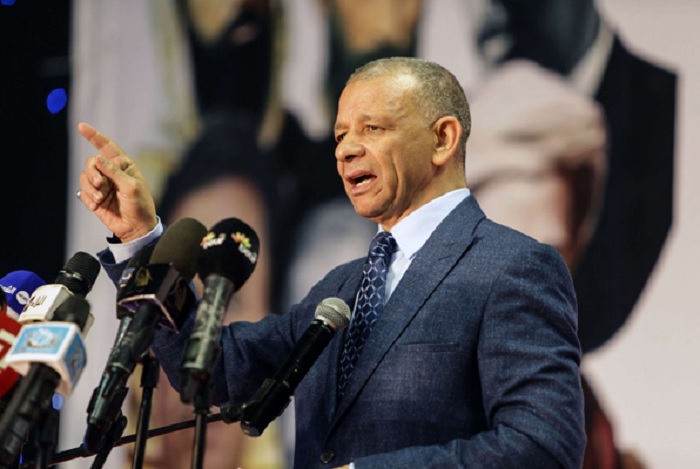
The Islamists are still in denial of the atrophy of their popular bases in recent years, and blame their failures each time on obstacles which they say are “manufactured” by the authorities.
Islamists in Algeria suffered a new setback after the results of last week’s popular referendum on a new constitution in the country were revealed.
Despite their presence on both sides of the divide over the referendum, the record low voter turnout in the referendum,revealed the decline in the influence of Islamists on the Algerian street, and the end of the era of traditional parties controlling the country’s political scene.
The Acting Secretary-General of the Mujahideen Organisation (the veterans’ association) Mohand Ouamar Benlhadj described, in an audio recording posted on the organisation’s YouTube channel, the active political parties as “empty shells” after their failure to influence the Algerian street, and their appearance as a minority rejected by the majority of Algerians.
In his statement, Benlhadj called for political openness and ending of hindrances to activists for the sake of the birth of a new political party class. He said action should not be limited to the civil society project, which he likened to the “popular committees” on which the late Libyan long time ruler Muammar Gadhafi relied in his political control of society.
The Islamists are considered the biggest losers in the popular referendum on the constitution in Algeria, a new setback to be added to their previous setback in the regular legislative and local elections of 2017. Those among them who came out in favour of the new constitution, represented only a small fraction of the three-million-votes strong pro-constitution front, which was constituted essentially of nationalist and Islamist forces, civil society organisations and pro-government parties. As for the Islamists in the rejectionist front, including the major Muslim Brotherhood parties (the Peace Society Movement, the Justice and Development Front, and the Ennahda Movement), they also constituted a small fraction of that front estimated at two million votes.
The leaderships of the Islamic parties found themselves greatly embarrassed again in front of their popular bases, after the emergence of a record popular boycott of the referendum, which confirmed the decline of the Islamists’ influence on the Algerian street. Neither the pro-constitution Islamists, some of whom had pledged to muster 12 million votes in favour of the new constitution, nor the anti-constitutionalist Islamists have been able to turn the equation in their favour after the results revealed that they were only part of 33% of the total voters.
The head of El-Binaa El-Watani Movement and former candidate for the presidential elections, Abdelkader Bengrina, disappeared from view to avoid the embarrassment of being reminded of pledges he made before the date of the referendum, including “passing the constitution with 12 million votes,” and his “resignation from all leadership positions in his movement if proven otherwise.”
The head of the Movement of Society for Peace (MSP), Abderrezak Mokri, considered “the low turnout rate in the referendum on the draft amendment of the constitution and the size of the opposition to it denies it any credibility and takes away its political and popular legitimacy, and this despite the huge means resorted to by the authorities to have it passed.” The movement, however, did not comment on its own low popular support, given that it was among those who called for the rejection of the amended constitution.
In its press statement, the Movement of Society for Peace said that “the rejectionist front is one front and it is a very broad one that has exceeded 85% in this referendum. Regardless of the variety of expressions and positions inside the front, it is still invited to work together for effective and peaceful political change, in a way that preserves the country from the real dangers that threaten it. The referendum result confirms the failure of the ruling authority’s projects and its inability to achieve national consensus on the constitution as it was announced.”
The movement called on everyone “to correctly interpret the announced results and their effects on the country’s stability, reflect on the seriousness of the situation, strive to build trust, embody the actual popular will, and achieve a true democratic transition through an inclusive national consensus that spares the country from dangers, protects national unity, and ensures stability, development and prosperity.”
The Islamists are still in denial of the atrophy of their popular bases in recent years, and peg their failures each time on obstacles that are “manufactured” by the authorities, according to them. In the case of the referendum, they accused the authorities of not allowing them to launch a counter-referendum campaign to explain their position to the Algerian street, by contrast to the huge support given to the pro-referendum front.
